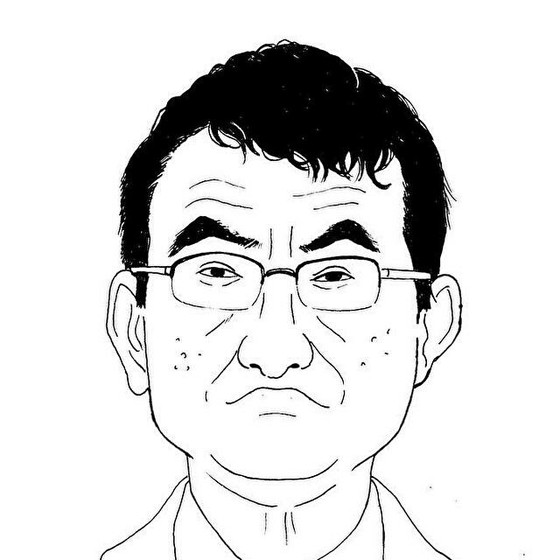 |
Prior to this, in April, the Japanese government said that the term "comfort women" was "misleading" and that it was simply "comfort women" rather than "Military Comfort Women " or "So-called Comfort Women." The Cabinet decided on the answer, "It is appropriate to use the term."
Due to the revision of the textbook certification standards in 2014, it is stipulated that the textbooks for social studies in junior high school and geography history/public citizens in high school should be based on the unified view of the government.
In response to the Cabinet decision, the Ministry of Education, Culture, Sports, Science and Technology held an unusual briefing session for textbook companies in May, requesting a correction application "until the end of June." According to NHK's report at that time, at the briefing session, the textbook company asked, "Is there a possibility of a recommendation if I do not apply for correction?" It is said that they answered.
According to the Asahi Shimbun, three companies, Yamakawa Shuppansha, Jikkyo Shuppan, and Shimizu Shoin, have applied for corrections to the description of "comfort women."
Yamakawa Shuppansha has deleted the description of "comfort women" and the expression "comfort women" from textbooks on Japanese history in junior high school and high school. Shimizu Shoin maintains the description of "so-called comfort women" in high school "history synthesis" textbooks, but "it was often expressed in this way, including government discourse, etc. (omitted). The Japanese government says it is appropriate to use the word "comfort women."
An official of the Korean Ministry of Foreign Affairs (equivalent to the Japanese Ministry of Foreign Affairs) said on the 10th that the Ministry of Education, Culture, Sports, Science and Technology approved the application by the textbook company. Officials said, "The compulsory mobilization, recruitment, and transfer of former Japanese military prostitutes is an undeniable historical fact, and the vivid testimony of the victims is more than any literature on the compulsory mobilization of comfort women by the Japanese military. "Clear evidence to prove" and so on.
The Korean media also reported the news of approval by the Ministry of Education. The Chosun Ilbo said, "The description of 'comfort women' will disappear from Japanese textbooks. There are voices saying that it is a death of culture."
The Kono Statement is a discourse announced by then Chief Cabinet Secretary Yohei Kono in August 1993. He used the expression "comfort women" to describe the comfort women issue, and apologized for "deeply damaging the honor and dignity of many women with the involvement of the (Japanese) military."
As mentioned above, the textbook certification standards revised in 2014 stipulate that textbooks for social studies in junior high school and geography history / public citizens in high school should be described based on the unified view of the government. In this regard, there are voices that it may lead to the imposition of a uniform view as textbooks with well-balanced content are required.
About 30 years ago, Kono's discourse was the decision of the Japanese government, Yohei Kono, who expected the Japanese Prime Minister's visit to South Korea and improved relations with South Korea in the storm of comfort women's coverage. For the next 20 years, South Korea has enjoyed a "moral superiority complex" over Japan.
A story of "A peninsula that lived peacefully and morally in a white coat. After being ruled by a different race of Japan, 200,000 innocent girls became comfort women and took them to the battlefield with the involvement of the Japanese army." was completed.
The fact that he owned, sold, and inherited 40% of his family as a nobi, the international situation until the merger, and the modernization of the peninsula by Japan were all denied, and all the damage and misfortune of the peninsula were "fragments of morality." It was said that it was the responsibility of Japan.
Looking at the "small Chinese consciousness" that positions Japan as a lower rank than South Korea in the Korean traditional Confucian world view, Japan's rule on the Korean Peninsula violated the order. Moreover, this "moral superiority complex" was an opportunity to overcome the inferiority complex of South Korea, whose self-esteem was hurt by the economic disparity between Japan and South Korea.
Meanwhile, the Korean economy also showed momentum as if it was catching up with the Japanese economy. The breakthroughs of Pohang Steel (POSCO), Hyundai Motor (HYUNDAI) and Samsung Electronics (SAMSUNG) have made South Korea expect superiority not only in "morality" but also in "economy".
However, South Korea forgot about the existence of Japan, which contributed to its foundation, and rather took an excessive anti-Japanese action. The comfort women proceedings from the 2010s and the rebellion against the promises of Japan and South Korea in 2015 have made South Korea a liar. This has turned the "moral superiority complex" for more than 20 years into a big turnaround.
Unlike Japan in 1993, Japan in 2021 no longer has an "adult response" to concede to South Korea. With the development of the Internet and SNS during that time, Japanese politics stopped stroking South Korea's victim consciousness.
It was possible that Taro Kono would become prime minister in this LDP presidential election. In 1965, "Takeshima-Dokdo Secret Agreement" was decided by Mr. Taro Kono's grandfather, Mr. Ichiro Kono, for "normalization of diplomatic relations between Japan and South Korea." Then, in 1993, the "Kono Statement" decided by Taro Kono's father, Yohei Kono, played a major role in the relationship between Japan and South Korea at that time.
South Korea is trying to regain the "moral superiority complex" mount, and Japan is no longer conceding to South Korea. What remains the same in 1965, 1993 and 2021 is the threat of North Korea. What will Taro Kono's "decision" be like in this difficult time?
2021/09/17 21:07 KST


